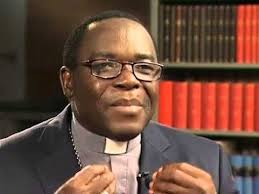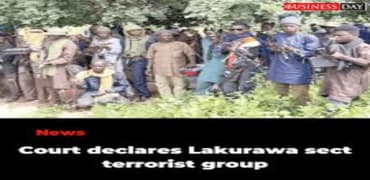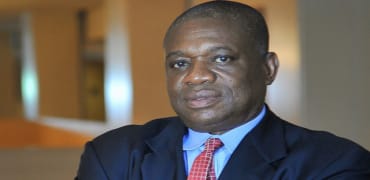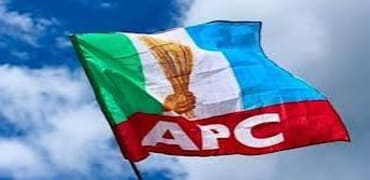Accidental Leadership - Kukah Claims Nigeria's Presidents Are Unprepared For Power; Tinubu Defends Himself
“Accidental Leadership” – Kukah Claims Nigeria’s Presidents Are Unprepared for Power; Tinubu Defends Himself
By Achimi Muktar
In a thought-provoking speech, Bishop Matthew Kukah, the Catholic Archbishop of Sokoto Diocese, has ignited a fierce debate about the leadership trajectory of Nigeria's Presidents. Speaking in Abuja at the commissioning of a new school building and the 4th Amaka Ndoma-Egba Memorial Lecture, Kukah described several Nigerian leaders, including President Bola Tinubu, as products of an “accidental leadership cycle” – leaders who were thrust into power without the necessary preparation or vision.
A Legacy of Unprepared Leaders?
Kukah’s critique painted a striking picture of Nigeria's leadership history, one marked by a continuous pattern of leaders who assumed power by accident rather than by design. Reflecting on Nigeria’s presidential succession, he pointed out that many leaders, from Olusegun Obasanjo to Muhammadu Buhari, were not fully prepared for the responsibilities they inherited.
According to Kukah, Tinubu, who succeeded Buhari, is still grappling with the immense challenges of leadership, despite his claims of readiness. “We are still trying to find our footing,” he said, emphasizing the complexity of governance in today’s fast-changing world.
He further illustrated his point by highlighting that Buhari came to power unexpectedly, taking over from Goodluck Jonathan, who never envisioned himself as president. Similarly, Jonathan succeeded Umaru Yar’Adua, who had planned to return to teaching after his governorship. Yar’Adua, in turn, replaced Obasanjo, who was suddenly released from prison to become president, and the cycle continued with leaders who were often not adequately prepared for their roles.
“This is the cycle,” Kukah said. “The missing link in all of this is knowledge and preparation.”
The Case for Leadership Preparation
Kukah argued that while Nigeria has embraced democratic principles, including “one man, one vote”, its democratic process has repeatedly failed to produce competent leadership. He emphasized that modern leadership requires not just ambition, but a deep understanding of the evolving challenges facing the nation.
Speaking at the same event, Brig. Gen. Buba Marwa, Chairman of the National Drug Law Enforcement Agency (NDLEA), stressed the importance of cultivating leadership qualities from an early age. He linked the nation’s challenges to a lack of effective leadership and accountability, and also revealed a shocking trend within the drug trade – the involvement of visually impaired individuals in trafficking illicit substances.
Marwa shared a disturbing tale of a blind man arrested for transporting cannabis, which led to the uncovering of a cartel involving several blind individuals. While the full details of the cartel’s operations remain under wraps, Marwa's disclosure served as a stark reminder of Nigeria’s governance issues, and the need for leaders who are equipped to handle such challenges.
Tinubu Fires Back: ‘I’m Not Accidental’
In a swift counter to Kukah’s remarks, the Presidency defended President Tinubu, arguing that he is not an accidental leader. Mr. Bayo Onanuga, Special Adviser to the President on Information and Strategy, emphasized that Tinubu is a “reformer”, and his actions speak for themselves.
“Does he look like an accidental leader?” Onanuga fired back. “He is doing his best to ensure that we have a turnaround in this country. He prepared for this office, and he is doing his best to lift the country.”
Onanuga continued to praise Tinubu’s efforts, noting that the president’s reforms are far-reaching and will take time to show results. From overhauling Nigeria’s taxation system to tackling issues in the oil sector, Onanuga insisted that Tinubu’s leadership is far from accidental. “Reforms are not done in quick fixes,” he added, recognizing the difficulty in turning the country around but stressing that “he is doing it.”
Is Tinubu's Leadership the Key to Change?
While Kukah’s remarks have sparked serious reflection on the state of Nigeria’s leadership, the Presidency remains firm in its stance that President Tinubu is in control, with the necessary foresight and plans to reform the nation.
As Nigeria continues to wrestle with the challenges of governance, one question looms large: Can a cycle of accidental leadership truly lead to lasting change, or is it time for Nigeria to break free and build a more deliberate, prepared leadership structure?
The debate is far from over – and as Kukah's critique and Onanuga's defense reveal, the future of Nigeria’s leadership remains a topic that will continue to shape the nation’s political discourse.




















